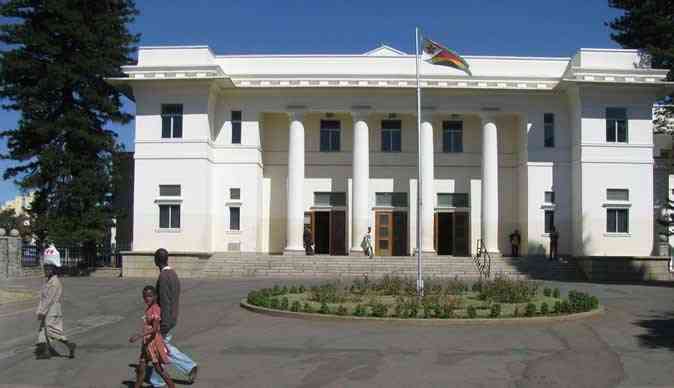
POLITICAL and religious leaders must act as vectors for tolerant, inclusive, and peaceful societies.
The objectives of the Pan-African Parliament largely relate to the promotion of peace, security, and stability.
The presence of Africa’s Premier parliamentary forum at the Marrakesh interfaith gathering recently was in alignment with its mandate of promoting peace, security and stability through tolerance, inclusivity and respect for diversity.
Religious and political leaders wield incommensurable influence and they have capacity to build resilient societies, where all members feel included.
But if not used responsibly, and for the greater good of mankind, the influence can foster intolerance, cultism and the conflicts and fatalities attendant to them.
One good example is the ongoing conflict in Sudan caused by a political and military stand-off, which has claimed over 1 000 lives, displaced more than 1,4 million people with a further 476 800 fleeing to neighbouring countries.
Another case in point is that if Kenya, where more than 300 bodies have been found at a ranch of a pastor who allegedly told his followers to starve themselves to death to meet Jesus.
These examples underscore the timeliness and relevance of the recent Pan-African Parliament conference in Morocco which ended last week.
- Sudan crisis: Ceasefire extended but fighting continues
- Feature: A letter from home: Zimbabwe’s unending crisis
- Lessons for media from Kenya elections
- Kenya's top court to rule on disputed presidential election
Keep Reading
Our people can either become victims or perpetrators of intolerance on the basis of their beliefs, but they can also be agents of change in encouraging tolerance, promoting dialogue, inclusivity and respect for diversity if we lead them in the right direction.
Parliamentarians, as community and opinion leaders, have an important role to play in meaningfully engaging with the values and worldviews of their constituents, many of which are influenced by religion or belief.
Religious and political leaders must look within themselves to effect change in the world.
We draw on the sobering words of the great Indian leader, Mahatma Gandhi who said: “You must be the change you wish to see in the world.”
The late former Vice-President of Zimbabwe, Dr John Landa Nkomo (May God rest his soul) amplified this by saying: “Change begins with you. Change begins with me. Change begins with all of us.”
As politicians and religious leaders, we are revered by our people as opinion leaders.
Even before we look at what our Parliaments or congregants are doing, we must start by asking ourselves: What are we doing to make this world a better place for our children to live in regardless of race, gender, ethnicity, religion or political affiliation?
Parliaments and parliamentarians must ensure that human rights are upheld, without distinction of any kind, be it religious or otherwise.
Religious leaders also wield an influence comparable to political actors.
Moreso with the growing prominence of the “Man of God”, some of whom have been elevated to the status of deities.
We thus have a collective responsibility to leverage on our influence to inform, educate and raise awareness among our people on the importance of tolerance, inclusivity and collaboration and thus transform our societies into peaceful, tolerant and inclusive societies.
Politicians and religious leaders are largely responsible for causing intolerance and the consequences thereof in many cases.
They should play a role in curbing incidents of xenophobic, ethnic, gender-based, racial and political violence, all of which point to intolerance of differences, intolerance of divergent opinions and discrimination.
As a continental Parliament, we have debated and spoken out against racism, xenophobia, religious and political intolerance and we shall continue to do so. We cannot afford to remain silent.
We have a duty to hold our member States to account and ensure that we promote peaceful co-existence.
Research has found that countries that uphold freedoms have more vibrant and democratic political institutions, rising economic and social well-being, diminished tensions and violence, and greater stability.
There should be synergies between politicians and faith leaders to provide sustainable and long-lasting solutions to challenges facing the world in general and Africa in particular.
Africa is still riddled with a lot of challenges, chief among them, poverty, unconstitutional changes of government, rising incidents of conflict, the ravages of climate change, terrorism and violent extremism, unemployment, migration, energy insecurity and the looming threat of hunger and malnutrition.
The resolution of these challenges requires a concerted approach by all regardless of religion or political affiliation.
It is, therefore, critically important now more than ever for political and religious leaders to come together to work towards a common future for posterity instead of focusing on issues that undermine socio-economic development.-Chief Fortune Charumbira, President of the Pan-African Parliament
Engaging men remain crucial to the achievement of gender equality
ON June 4, 2023, the Women’s Academy for Leadership and Political Excellence (Walpe) with support from the European Union and in partnership with Zimbabwe Election Support Network (Zesn) conducted a male engagement session on gender equality with 80 men from Hopely, a peri urban area in Harare.
The engagement session was accompanied by a social soccer tournament with competing teams drawn from Zanu PF, Citizens Coalition for Change and the religious sector.
Before the match, discussions were held to get buy-in from the participants to understand and accept women as capable leaders.
Patriarchy, culture, religion and other harmful social norms lead to women being treated as second-class citizens by men, hence their endorsement is crucial in creating a level playing field for women to excel in politics.
During the session, it was discovered that women are good leaders and hence men should vote for women and Walpe emphasised the need for peace as we head to the August 23 harmonised elections.
Charles Thole, a representative from Zesn, also had a talk with the men present and emphasised the importance of supporting women leaders.
He highlighted the importance of ending all forms of violence against women leaders.
The men noted that cultural beliefs, lack of confidence, violence, harassment, intimidation, lack of resources and cyber-bullying hinder women from participating in leadership processes.
While the majority of participants initially subscribed to stereotypes on women’s exclusion from leadership positions and gender, they ended up pledging to support women leaders and refrain from any form of violence towards women leaders as the country heads towards elections.-Walpe
Parly must guard against repressive legislation
THE recent passage of the Patriot Bill by the National Assembly risks ushering in a new political ecology of authoritarianism, despotism and fear.
The Patriot Bill is viewed by many as a potential tool targeted at political opponents.
The Bill has already sailed through Senate. Its passing is a cause for concern.
Its passing is viewed by political scientists as a calculated and strategic move meant to influence the electoral processes by alienating opposition political parties from international sympathy.
This is because the Bill is vague on what it regards as “undermining sovereignty and national interest”.
As such, if assented to by the President, the Patriot Bill together with the Private Voluntary Organisations (PVOs) Amendment Bill, which was passed by Parliament last year, pose a great threat on the already shrinking civic space and injure other constitutionally-guaranteed rights and freedoms like those of expression, movement and association.
Ideally, government must listen to differing views of its citizens irrespective of their age, gender, wealth or geographical location as this is key in building a thriving democracy.
There are numerous benefits which can be missed if government limits citizen participation, including among others:
- Public policy improvement — stakeholder consultations provide well informed advice;
- Legitimation — public acceptance in policy-making procedures and outcomes increases policy durability;
- Co-optation — subduing public criticism by recruiting potential critics in the policy-making process;
- Assessment of public opinion — allows the government to evaluate what citizens want, expect, or will tolerate in public policy; and
- Relationship building — creating and institutionalising a routine of consultation between the government and its agencies and interested public.
From the foregoing, it must be emphasised that Parliament must guard against repressive laws which, in turn, constrain its ability to discharge its oversight role.
The oversight function allows Parliament to assert the system of checks and balances on the Executive branch of the State and acts as the defender of citizens’ interests.
Parliamentary oversight function also ensures that government policies and actions are both efficient and commensurate with the needs of the public, helps identify misconduct or deficits, and allows for remedial action against the Executive.
In light of the foregoing, oversight is a central means of ensuring good governance and holding the Executive to account to prevent or sanction the abuse of authority as well as prevent undermining of rights — political, environmental, women’s and children’s rights etc.-Zimbabwe Coalition on Debt and Development






